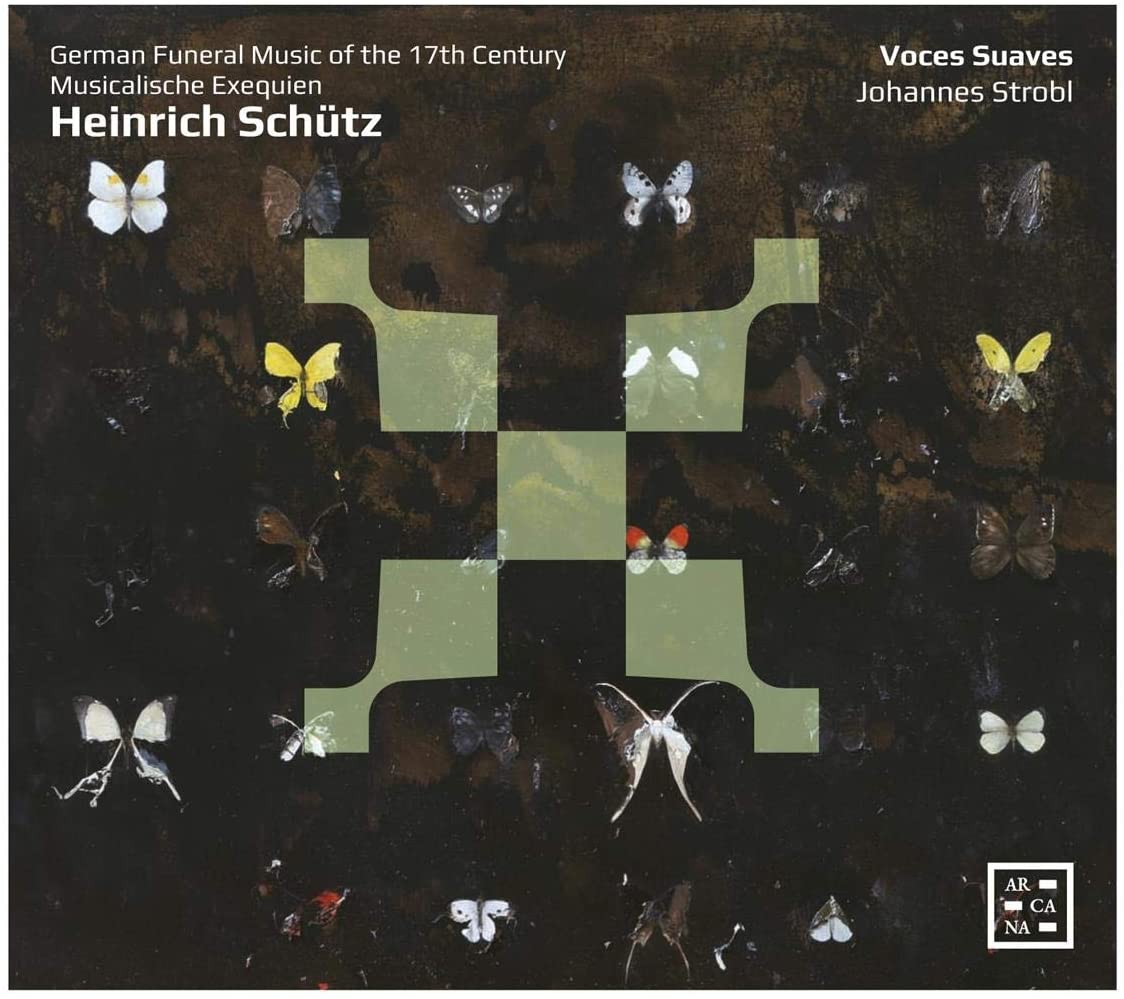Schütz: Musicalische Exequien
Voces Suaves, Johannes Strobl
65:56
Arcana A483
+Music by Ebeling, Gleich, Kessel, Knüpfer, Rosenmüller, Schein, Schelle
Click HERE to buy this on amazon.co.uk [sponsored link to help cover the costs of maintaining this website]
The very first note – a wonderful, resonant low C on voices and lute – heralds a promising CD centred on Heinrich Schütz’s Musicalische Exequien and setting that funeral music in the context of other motets from 17th-century Germany, that might be suitable for such elaborate occasions. The CD starts with the splendid motet by Schein, Ich will schweigen, where all the sonorities we will hear in the rest of the CD are displayed. Second is a motet by Andreas Gleich, set for contrasting choirs of high and low voices. The overall sound is marvellous with near-faultless singers, including some excellent and un-wobbly sopranos, clear-toned tenors and a violone-like bass, with wonderful open, rasping bottom notes. Somewhere in the middle, alas, is a female alto whose voice is not so under control; this slightly mars what is otherwise a well-recorded and mesmeric performance. Even if you have the wonderful CD of the Musicalische Exequien by Vox Luminis, you shouldn’t miss the other motets here by Schein, Gleich, Knüpfer, Schelle, Ebeling, Kessel and Rosenmüller – all, except for Schein’s, unknown to me.
Voces Suaves, founded in 2012, is based in Basel and many members are former students at the Schola Cantorum. This CD was recorded last summer in the former Romanesque Alte Kirche in Boswil, and if you want a glimpse of the quality of this group, their website offers a fine Youtube recording of Monteverdi’s Sfogava con le stelle, with all-male lower parts. There is an interesting essay (in English, German and French) by Cosimo Stawiarski to introduce the place of music in German 17th-century funeral rites, and alongside the texts of each motet there are details of exactly which of the 12 singers is singing which line: the continuo includes a G violone, two theorbos and a positive organ (with some bright upperwork) played by Johannes Strobl who directs this performance – no details are given of these instruments, nor of pitch or temperament, but full and helpful details are given of all the musical sources.
I would have preferred the theorbos recorded not quite so close, as the voices do not need rhythmic arpeggios to keep the suspensions taut, and I was surprised that there was not more resonance in this concert room conversion of the former church, though there is adequate give to ensure a good overall tone.
This is an excellent disc by an experienced group, singing the music that is clearly at the heart of their repertoire, and the accompanying motets provide an ideal context for Schütz’s Exequien.
David Stancliffe
